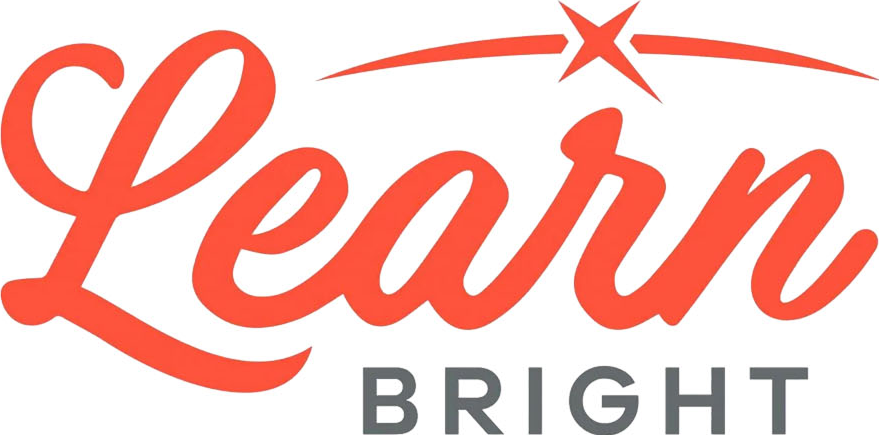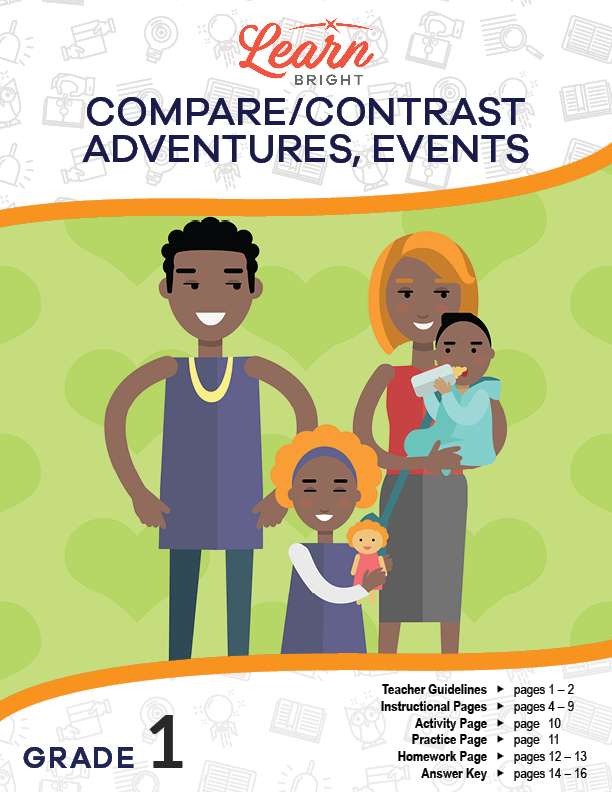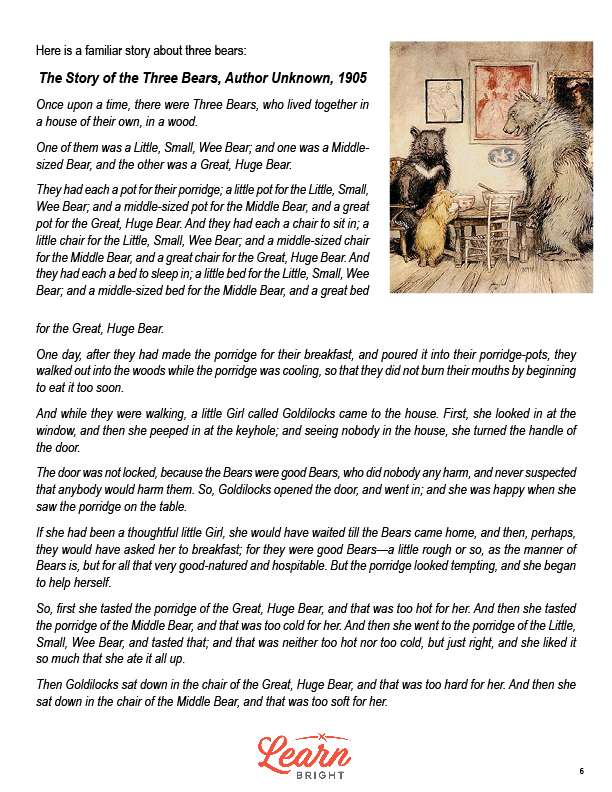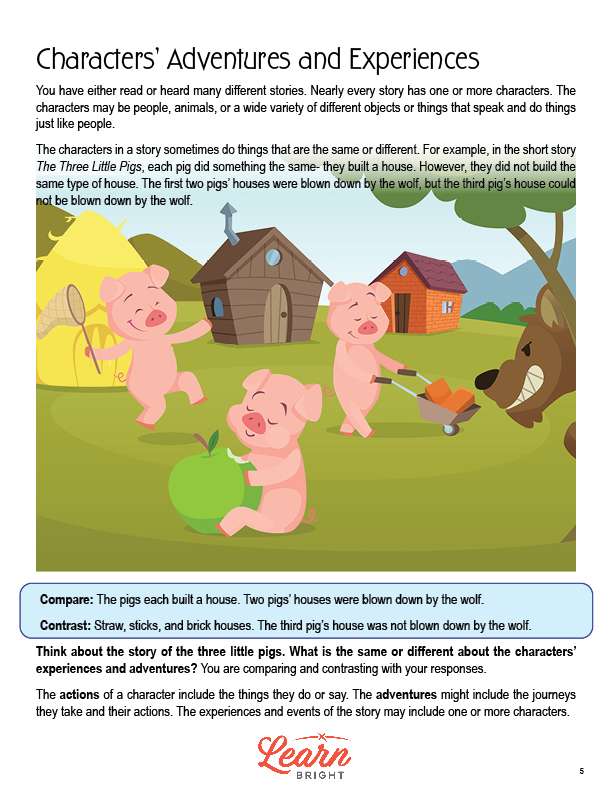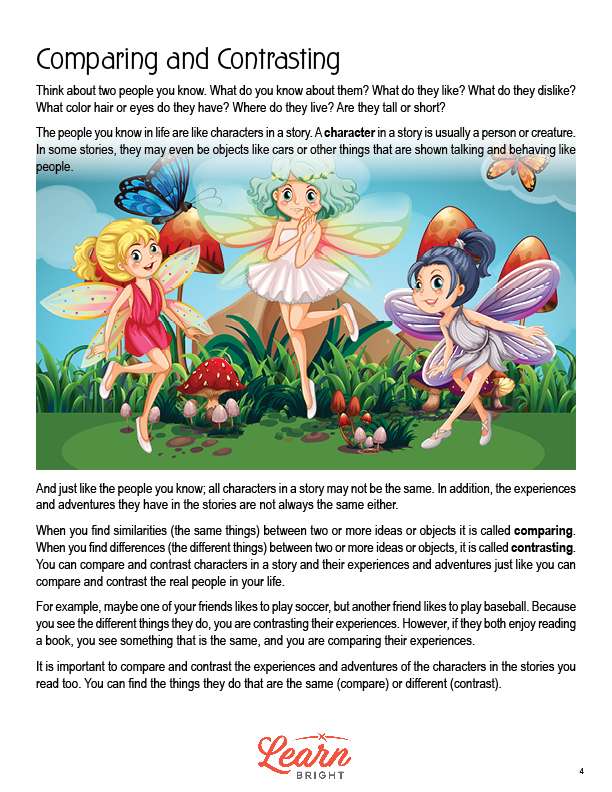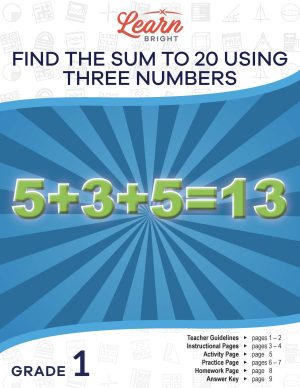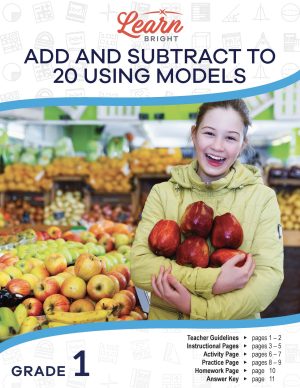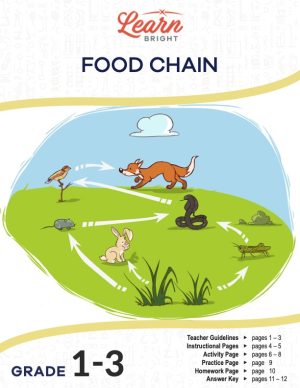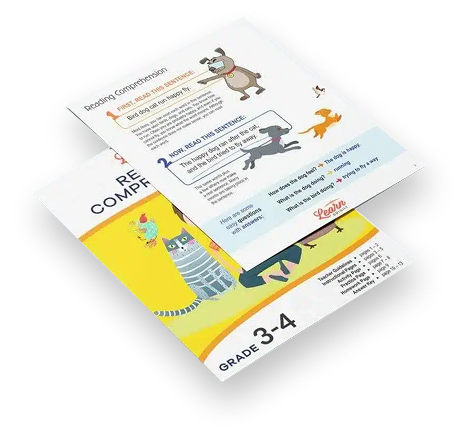Description
What our Compare/Contract Adventures, Events lesson plan includes
Lesson Objectives and Overview: Compare/Contrast Adventures, Events teaches students strategies for comparing and contrasting characters and events in stories. At the end of the lesson, students will be able to compare and contrast the adventures and experiences of characters in familiar stories. This lesson is for students in 1st grade.
Classroom Procedure
Every lesson plan provides you with a classroom procedure page that outlines a step-by-step guide to follow. You do not have to follow the guide exactly. The guide helps you organize the lesson and details when to hand out worksheets. It also lists information in the yellow box that you might find useful. You will find the lesson objectives, state standards, and number of class sessions the lesson should take to complete in this area. In addition, it describes the supplies you will need as well as what and how you need to prepare beforehand. The only supplies you need for this lesson are the handouts. To prepare for this lesson ahead of time, you can prepare a story for the activity, pair students for the activity, and copy the handouts.
Options for Lesson
Included with this lesson is an “Options for Lesson” section that lists a number of suggestions for activities to add to the lesson or substitutions for the ones already in the lesson. One optional addition to this lesson is to add a second story to the activity. You could also use a real-life experience for the activity and have students compare the people involved. Another optional addition to this lesson is to have two students share stories about a vacation or weekend activity they’ve recently completed and have the other students compare and contrast their experiences.
Teacher Notes
The teacher notes page includes a paragraph with additional guidelines and things to think about as you begin to plan your lesson. This page also includes lines that you can use to add your own notes as you’re preparing for this lesson.
COMPARE/CONTRAST ADVENTURES, EVENTS LESSON PLAN CONTENT PAGES
Comparing and Contrasting
The Compare/Contrast Adventures, Events lesson plan includes six content pages, three of which are an example story for use in the lesson. This lesson begins by asking students to think about two people they know and ask themselves some questions about what they know about those people—their likes and dislikes, what color their hair and eyes are, where they live, and how tall they are. We can think of the people we know in real life like characters in a story. Like real people, all characters are not the same. They have different characteristics, personalities, and experiences.
We can compare two or more ideas or objects by finding their similarities. We can contrast ideas or objects by finding their differences. You can compare and contrast the characters in a story by looking at their experiences and adventures. You can do this with real people too! Maybe you have one friend who like soccer and another who likes baseball. By noting this, you are contrasting (finding differences). However, if they both like reading, you are comparing (finding similarities).
Characters’ Adventures and Experiences
Almost every story has one or more characters, who may be people, animals, or objects that speak! The lesson uses the story The Three Little Pigs to illustrate comparing and contrasting. The characters in that story all built a house (comparing), but they all built different types of houses (contrasting). Two of the houses were blown down by the wolf, but one was not. When thinking about this story, what is the same about the characters’ experiences and adventures and what is different? By answering those questions, you are comparing and contrasting. Their actions are the things they do or say, and their adventures are journeys they take.
The lesson then includes The Story of the Three Bears for students to read. After the text of the story, the lesson asks students a few questions, like how many characters there were in the story. Students will then compare and contrast the four characters in the story (three bears and Goldilocks). The lesson includes a helpful chart with two columns: one for comparing and one for contrasting different elements of the story, like the characters and their actions. Students should review this chart and then brainstorm some other things that they can compare and contrast for this story.
Comparing and contrasting can help you better understand, remember, and learn about stories and their characters. This will also help you understand the real people in your life and their experiences, too!
COMPARE/CONTRAST ADVENTURES, EVENTS LESSON PLAN WORKSHEETS
The Compare/Contrast Adventures, Events lesson plan includes three worksheets: an activity worksheet, a practice worksheet, and a homework assignment. You can refer to the guide on the classroom procedure page to determine when to hand out each worksheet.
COMPARE/CONTRAST CHARACTERS ACTIVITY WORKSHEET
Students will work with a partner to complete this activity. The teacher will read a story out loud and each pair of students will fill out the accompanying chart. They must list the title of the story and the main characters. Next, they will compare and contrast the characters and their experiences and adventures.
Students can work either alone or in larger groups for this activity if you’d prefer.
COMPARE OR CONTRAST PRACTICE WORKSHEET
For the practice worksheet, students will complete two exercises. For the first, they will read ten statements and determine whether each compares or contrasts. And for the second, they will read a short story and compare and contrast the experiences of the two characters using the provided chart.
COMPARE/CONTRAST ADVENTURES, EVENTS HOMEWORK ASSIGNMENT
The homework assignment asks students to work with a Parent or other Adult Helper. First, they will think about themselves and a family members. They will compare and contrast an experience with that person.
Next, they will read a fable and answer questions related to comparing and contrasting.
Worksheet Answer Keys
This lesson plan includes answer keys for the practice worksheet and the homework assignment. If you choose to administer the lesson pages to your students via PDF, you will need to save a new file that omits these pages. Otherwise, you can simply print out the applicable pages and keep these as reference for yourself when grading assignments.
